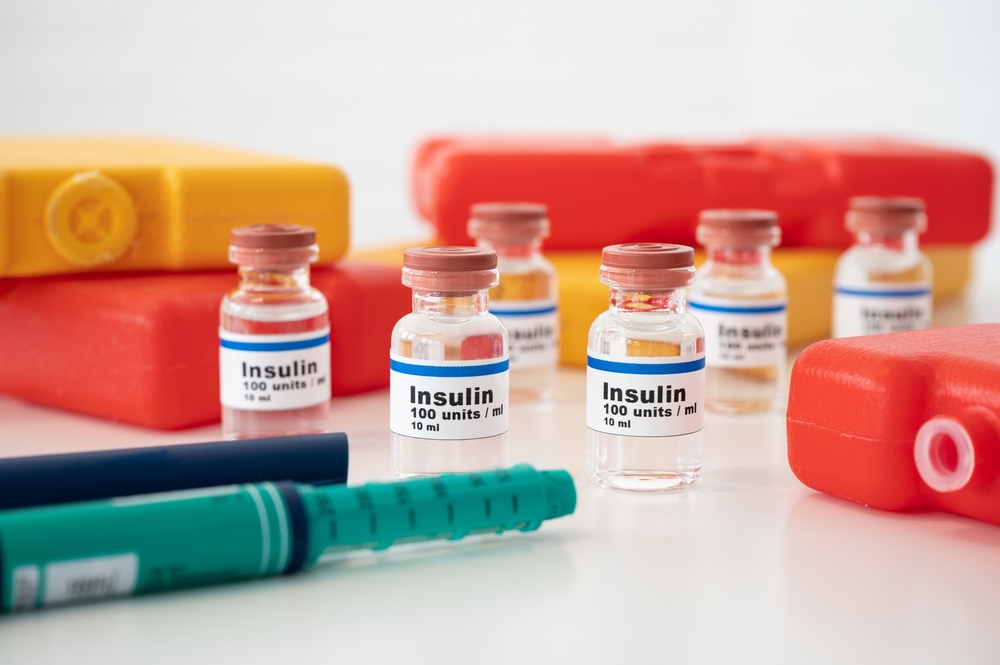Unveiling the Transformative Power of Insulin as a Hormone in Diabetes Management
In the realm of diabetes management, the conventional approach often revolves around viewing insulin as a pharmaceutical drug rather than the pivotal hormone it truly is. However, a paradigm shift is underway with the emergence of Physician Directed Physiologic Insulin Resensitization (PDPIR), a groundbreaking method that harnesses the inherent qualities of insulin as a hormone to address diabetes at its root cause and works independently to maintain current treatments of symptom suppression and forced sugar regulation.
Understanding Insulin as a Hormone:
Insulin, primarily known for its role in regulating blood sugar levels, is a hormone produced by the pancreas. While its significance in glucose metabolism is undeniable, its multifaceted functions extend far beyond mere sugar control. Insulin plays a crucial role in lipid metabolism, protein synthesis, and cellular growth, making it a central player in maintaining overall metabolic health.
Benefits of Using Insulin as a Hormone in Diabetes Management:
1. Restoring Physiological Balance:
Unlike traditional drug-centric approaches, utilizing insulin as a hormone focuses on restoring the body’s natural physiological balance. PDPIR recognizes insulin’s role in orchestrating a harmonious interplay between various metabolic processes, thereby addressing the root imbalances associated with diabetes.
2. Holistic Metabolic Regulation:
By viewing insulin as a multifunctional hormone, PDPIR promotes holistic metabolic regulation. This encompasses not only glucose control but also the intricate interconnections between insulin, lipids, and proteins. This approach aligns with the body’s innate capacity to maintain equilibrium.
3. Enhanced Cellular Sensitivity:
PDPIR aims to enhance cellular sensitivity to insulin, a pivotal aspect often compromised in diabetes. Rather than merely supplying exogenous insulin, this method focuses on optimizing the responsiveness of cells to the hormone. This can lead to improved glucose uptake, reduced insulin resistance, and enhanced metabolic efficiency.
4. Minimizing Side Effects:
Leveraging insulin as a hormone in diabetes management through PDPIR may mitigate the side effects commonly associated with traditional drug-based interventions. By working in harmony with the body’s natural processes, this approach seeks to minimize adverse reactions and promote long-term well-being.
5. Individualized Treatment Plans:
PDPIR recognizes the uniqueness of each patient’s metabolic profile. Tailoring treatment plans based on individual needs allows for a more personalized and effective approach to diabetes management, acknowledging the inherent variability in insulin requirements among individuals.
Conclusion:
Physician Directed Physiologic Insulin Resensitization represents a groundbreaking shift in diabetes management, emphasizing the pivotal role of insulin as a hormone. By addressing the root causes of diabetes and optimizing the body’s inherent regulatory mechanisms, this approach can transform how we perceive and treat this prevalent metabolic disorder. As research in this field advances, the integration of insulin as a hormone may pave the way for more effective, sustainable, and patient-centered solutions in the ongoing battle against diabetes.
As research in this field advances, the integration of insulin as a hormone may pave the way for more effective, sustainable, and patient-centered solutions in the ongoing battle against diabetes. This shift not only offers hope for better management but also encourages a broader perspective on the potential of hormones in overall health and wellness. Diabetes, once seen as a chronic condition requiring constant symptom management, may evolve into a condition that can be more effectively addressed at its core, improving the quality of life for millions of individuals worldwide. The future of diabetes management is indeed a promising one, where insulin’s transformative power as a hormone takes center stage.
As we stand on the threshold of a new era in diabetes management, it’s crucial to take action and explore the groundbreaking treatment options that harness the transformative power of insulin as a hormone. Metabolic Life Centers, at the forefront of this medical revolution, offer a beacon of hope for those living with diabetes. We encourage you to take the first step towards a healthier, more vibrant future by reaching out to Metabolic Life Centers today. Together, we can rewrite the narrative of diabetes, moving from mere symptom management to holistic, patient-centered care that addresses the root causes of this condition. Don’t wait; take charge of your diabetes journey and discover the potential for lasting wellness and improved quality of life. Contact Metabolic Life Centers now to embark on this transformative path toward a brighter and healthier tomorrow.




